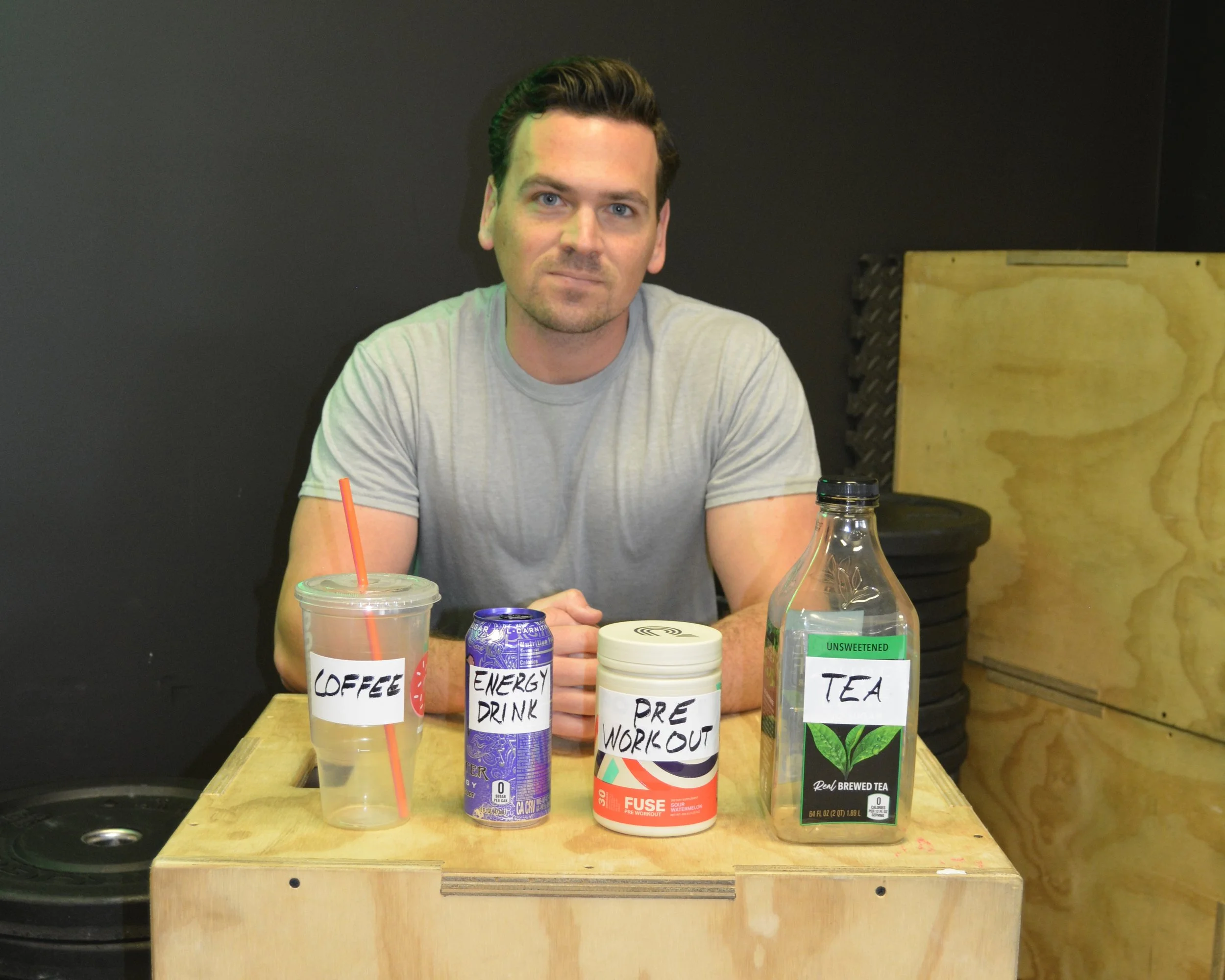Lifestyle and Mental Health: Let’s Talk About Caffeine
What we eat and drink not only effects us physically, but mentally as well. Never has this been more clear to me than in the past 37 days.
On October 30th I was admitted to the ER with a severe panic attack (my first and only one and it was not fun). After test results confirmed it was in fact a panic attack and not a heart attack, the doctor started discussing my lifestyle with me. I’m a healthy dude, work out a lot, eat pretty well, no pre-existing conditions, no allergies, etc. so the conversation went pretty quick…until we got to the question that, thus far, has had a significant positive impact on my life: “Do you consume nicotine, alcohol or caffeine and how much?”
Nicotine, no issue as this is not applicable to me.
Alcohol, I enjoy wine with dinner, beer for football and tequila in the sun.
Caffeine, drank throughout the day to help get me through work or before a workout.
These are the three substances that pose the greatest negative effects on anxiety. We’ll focus on caffeine for now.
After this discussion when I was back home, I calculated how many milligrams of caffeine I was averaging on a daily basis. Here is what a normal day looked like for me at the time:
Large Energy Cold Brew (cold brew with a shot of espresso, sometimes twice a day): 465mg caffeine
Unsweetened Black Iced Tea: 54mg per serving (~4-5 servings per day, 270mg)
Pre-Workout: 200mg
Energy Drink (occasionally): 140mg
For an adult, 400mg of caffeine is the maximum healthy daily amount that should be consumed. Without realizing it, I was averaging between 1,000mg - 1,250mg of caffeine each day…for almost a decade.
The main causes of anxiety are life experiences (traumatic events), inherited traits, underlying health issues, medical illness, stress buildup and lifestyle. So to be clear, caffeine does not cause anxiety directly, however the symptoms of overconsumption can often mimic those of anxiety, including panic attacks. For individuals with formal anxiety disorders, caffeine overconsumption can make symptoms even worse.
I’ll be honest, I was embarrassed going to the ER because in my head I knew I was likely just having a panic attack but the the whole time the voice in your head is saying, what if it isn’t? what if this really is a heart attack? Thankfully I went and spoke with a knowledgable doctor who talked to me first about my lifestyle instead of psychotherapy or medication (the two main treatments for anxiety).
I made a decision that day that I wouldn’t touch nicotine (again a non-issue), alcohol or caffeine again for a month…I wanted a complete detox from consuming anything contributing to my anxiety. Here is what I experienced:
Withdrawal symptoms
For the first week I had a very mild headache, nothing necessary of any pain meds or low dosage of caffeine.
The first 2-3 weeks I felt lethargic and energy was low.
For about three weeks I found it difficult to focus.
Increased craving for sweets.
Improvements
Drastic decrease in anxiety levels pretty early on in the process.
Sleep improved immensely. I have struggled with sleep for years. My mind would race for hours before I could fall asleep, I would wake up constantly, couldn’t fall back asleep and never woke up feeling rested. Within a little over a week I was sleeping through the night with the exception of getting up to go to the bathroom.
My feelings of restlessness and tenseness eased up.
Does saving money count?
Tips if you want to try this
First and foremost, consult a doctor. This is my own personal experience and yours will likely be completely different.
Everyone told me not to go cold turkey (including all my research) because the headaches from caffeine withdrawals would be terrible, especially based on how much I was consuming. I didn’t take that advice, I wanted to go all or nothing. I did have cold brew in the fridge in case I ended up getting headaches but as I mentioned above, mine were very minor. My advice, either slowly taper off or maybe just one cup in the morning.
Find coffee substitutes that you like. Decaf options also work, but keep in mind they still have trace amounts of caffeine.
Find something to replace coffee/tea in your morning routine (go for a drive, walk, cold shower, etc.).
In place of pre-workout, I take BCAA’s mixed with creatine.
Tell people you are close to about what you are doing to keep you accountable and so they know not to unintentionally derail your efforts.
After going 32 days without any caffeine, I am now back to one cup when I first wake up and I leave it at that. I find this gives me the nice kick in the ass to get the day going while not experiencing any of the negative affects I used to. It’s amazing how much I have benefited from this change. I would highly suggest anyone who consumes caffeine take a few minutes to calculate your average consumption and see where you are in relation to the 400mg mark. If you’re experiencing symptoms of anxiety, this could be a factor.
In my case, overconsumption of caffeine played a large part in my elevated anxiety. Luckily I met with a knowledgable doctor and made lifestyle changes that have drastically improved my quality of life. Again, I’m no doctor and I will always recommend consulting one yourself, if you are interested in reducing your caffeine intake or stopping altogether and would like to chat, leave a comment below or DM me on Instagram.
Sources:
https://www.mayoclinic.org/diseases-conditions/anxiety/diagnosis-treatment/drc-20350967
https://my.clevelandclinic.org/health/articles/15496-caffeine-how-to-hack-it-and-how-to-quit-it
https://www.goodrx.com/conditions/generalized-anxiety-disorder/does-coffee-caffeine-cause-anxiety
https://www.medicalnewstoday.com/articles/anxiety-and-caffeine
